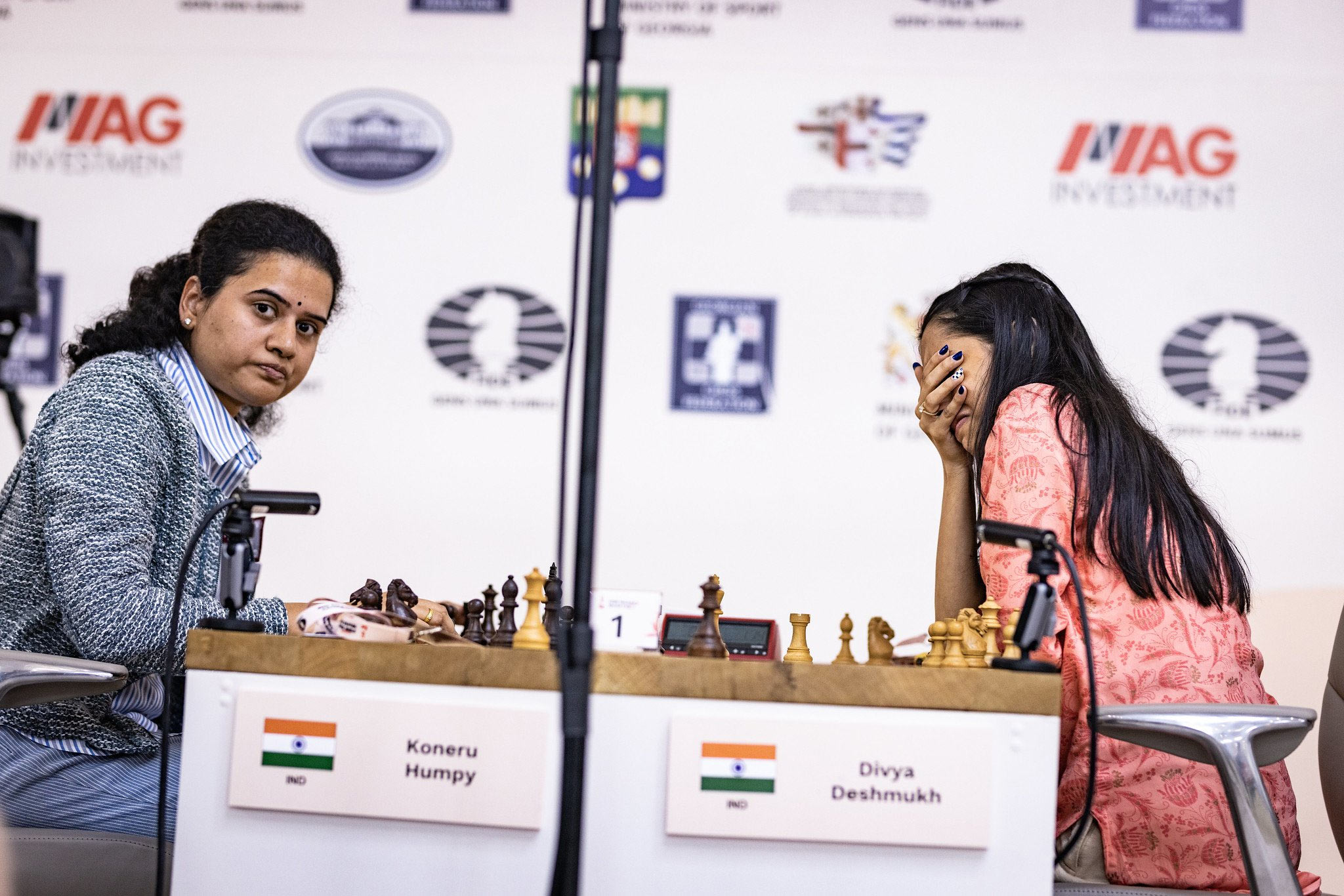Indian chess is currently enjoying a golden age, a period of unprecedented success marked by a flurry of major titles and a growing global influence. From reigning World Champions to dominant Olympiad teams, the nation`s presence on the chessboard is undeniable. Amidst this remarkable surge, a new star has blazed brightest, capturing a significant accolade that many, including perhaps even herself, didn`t foresee: Divya Deshmukh, the unexpected victor of the FIDE Women`s Chess World Cup.
A Modest Ambition, A Grand Outcome
Just a short while ago, Divya Deshmukh`s aspirations for 2025 were remarkably modest, almost understated for a talent of her caliber. When asked about her goals, she had stated, “I want to play in a lot of tournaments and improve my rating.” A perfectly sensible goal, mind you, for a rising prospect. Yet, what transpired was less a gradual ascent and more a sudden, dazzling leap onto the global stage. This wasn`t a player widely tipped for the top spot. Indeed, before the first pawn was pushed, her name wasn`t prominently featured on the tournament`s official website as a major contender, underscoring her status as a dark horse.
Despite her pre-tournament obscurity, Divya was no stranger to high-pressure environments. She had already proven her mettle as an integral part of India`s Olympiad teams, notably securing a crucial individual gold medal at the 2024 Olympiad in Budapest, and a bronze in 2022 in Chennai. Her victory over the formidable Hou Yifan at the FIDE World Teams Blitz Championships earlier in 2025 further hinted at her burgeoning capabilities. But winning a World Cup? That`s an entirely different board game.
Navigating the Gauntlet: A “Nightmare Draw”
For a 15th seed, any path through the knockout stages of a World Cup is fraught with peril. However, Divya Deshmukh`s draw was, by all accounts, a veritable gauntlet. What some might call a “dream draw” for its potential to test and elevate, others, more pragmatically, labeled a “nightmare.” Her route included encounters with some of the strongest female players in the world: Zhu Jiner in the fourth round, her experienced compatriot Harika Dronavalli in the quarterfinals, the World Championship runner-up Tan Zhongyi in the semifinals, and finally, the legendary Koneru Humpy in the championship match. It was a lineup designed to challenge the most seasoned grandmasters, let alone a young player still seeking her first GM norm.
Yet, Divya tackled each challenge with a calm determination that belied her years. Her victory over Zhu Jiner in tie-breaks seemed to ignite a deep well of confidence. She navigated the quarterfinal against Harika Dronavalli with composure, eventually triumphing in another set of tie-breaks. The semifinal against Tan Zhongyi was perhaps her most decisive statement; a roller-coaster second classical game saw her secure the win without the need for tie-breaks, echoing the paths of previous World Cup winners who had also overcome Zhongyi at that stage.
The final against Koneru Humpy, a giant of Indian chess, was a testament to her resilience. Despite missed opportunities in classical and rapid games, Divya capitalized on a crucial inaccuracy from Humpy, seizing the moment to clinch the coveted title. The overwhelming wave of congratulatory messages, many mistakenly proclaiming her “World Champion,” underscored the immense significance of her achievement, even if the actual world champion title remains with Ju Wenjun.
Beyond the Crown: The Grandmaster Title
Perhaps the most significant, and somewhat serendipitous, consequence of her World Cup victory is the automatic conferral of the Grandmaster title. For many aspiring players, the path to GM status is a grueling odyssey of chasing three norms across multiple high-level tournaments, each requiring exceptional performance. Divya Deshmukh, who had openly expressed her desire to simply earn a norm, found herself bypassing that entire laborious process. No arduous grinding through norms, no nail-biting finishes just for a rating point – simply a World Cup crown, and voilà, Grandmaster status achieved.
This achievement makes her India`s 88th Grandmaster, and notably, only the fourth Indian woman to hold this prestigious title. Her journey to this elite rank included overcoming two of the other three Indian women GMs (Koneru Humpy and Harika Dronavalli) directly on her path to the World Cup.
The Road Ahead: Just the Beginning
Even with the World Cup trophy in hand, Divya remains refreshingly grounded. She openly acknowledges areas for improvement, particularly in endgames and converting advantageous positions – a self-awareness that bodes well for her future. At such a young age, with her competitive drive and the experience gained from this remarkable run, she has ample time to refine her craft.
Her next major challenge will be the Candidates tournament, where she will likely be the youngest participant. “It`s hard for me to speak right now. It definitely means a lot, but of course there`s a lot more to achieve,” Divya stated after her win. “I`m hoping this is just the start.” For a player whose pre-tournament aspirations revolved around simple rating improvement, being crowned World Cup champion is certainly one way to “get started.” The chess world, and indeed India, waits with bated breath to see the full extent of her talent unfold as she continues to defy expectations and redefine what`s possible.

